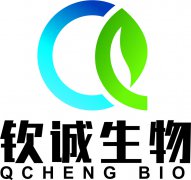| 出品公司: | Stratagene |
|---|---|
| 菌株类型: | E.coli |
| 培养基: | LB培养基 |
| 生长条件: | 37 ℃, 有氧 |
| 基因型: | TetrD (mcrA)183 D(mcrCB-hsdSMR-mrr)173 endA1 supE44 thi-1 recA1 gyrA96 relA1 lac Hte [F’ proAB lacIqZDM15 Tn10 (Tetr) Amy Camr]a |
| 抗性: | 氯霉素,四环素 |
| 质粒转化条件: | 42 ℃热激 |
| 应用: | 蛋白表达 |
| 产品编号 | 产品名称 | 规格 | 价格 |
|---|---|---|---|
| QC1055 | XL10-Gold |
500ul甘油菌 |
¥1000.00 |
Improved Transformation of Large DNA
Stratagene’s XL10-Gold® ultracompentent cells* were created to transform large DNA molecules with high efficiency. These cells exhibit the Hte phenotype,** which increases the transformation efficiency of large and ligated DNA molecules. In addition, the XL10-Gold strain allows blue-white color screening, cloning of methylated DNA and produces high-quality miniprep DNA. XL10-Gold ultracompetent cells are the host cells of choice for cloning experiments that require high transformation efficiencies.
Transformation of Ligated DNA
The LIC method was used to anneal the pCAL-n-FLAG vector (28 ng) to the kanamycin-resistance gene in a 15-µl reaction volume. Of this reaction, 1-µl aliquots were used to transform 100 µl of competent cells according to the manufacturers’ protocol. The entire transformation was spread onto LB agar plates with kanamycin.
Plasmid Libraries Approach Lambda Quality
The XL10-Gold ultracompetent cells are ideal for constructing plasmid libraries. Ligated plasmid DNA generally transforms with significantly lower efficiency than supercoiled plasmids, and large plasmids transform less efficiently than small plasmids. This bias against transformation of larger constructs impacts the construction of plasmid libraries and reduces the probability of finding full-length cDNA clones. XL10-Gold ultracompentent cells decrease this size bias and produce larger and more complex libraries, approaching the quality and efficiency of lambda libraries. Stratagene offers three plasmid cDNA library construction kits for directional cloning, supplied with XL10-Gold ultracompetent cells for superior performance.
Restriction Minus for Cloning Methylated DNA
Stratagene’s XL10-Gold cells make it possible to clone methylated DNA. Eukaryotic genomic DNA can be highly methylated, and the methylated patterns can vary in different tissues and at different times during development. cDNA is often methylated during synthesis to protect internal restriction sites from cleavage during later processing. When DNA is methylated in a fashion unlike the bacterial host patterns, it is cleaved by the E. coli host restriction systems, resulting in a significantly skewed representation.
The XL10-Gold cells are deficient in all known E. coli K12 restriction systems to decrease the likelihood of generating unrepresentative libraries. Absence of these endogenous bacterial restriction systems increases the efficiency of introducing eukaryotic DNA into E. coli, and increases the size and representation of libraries constructed with methylated or hemi-methylated DNA.


